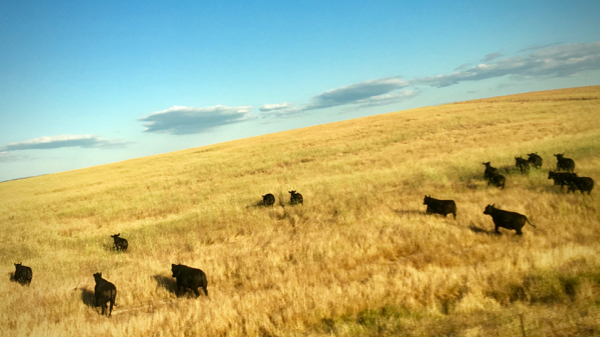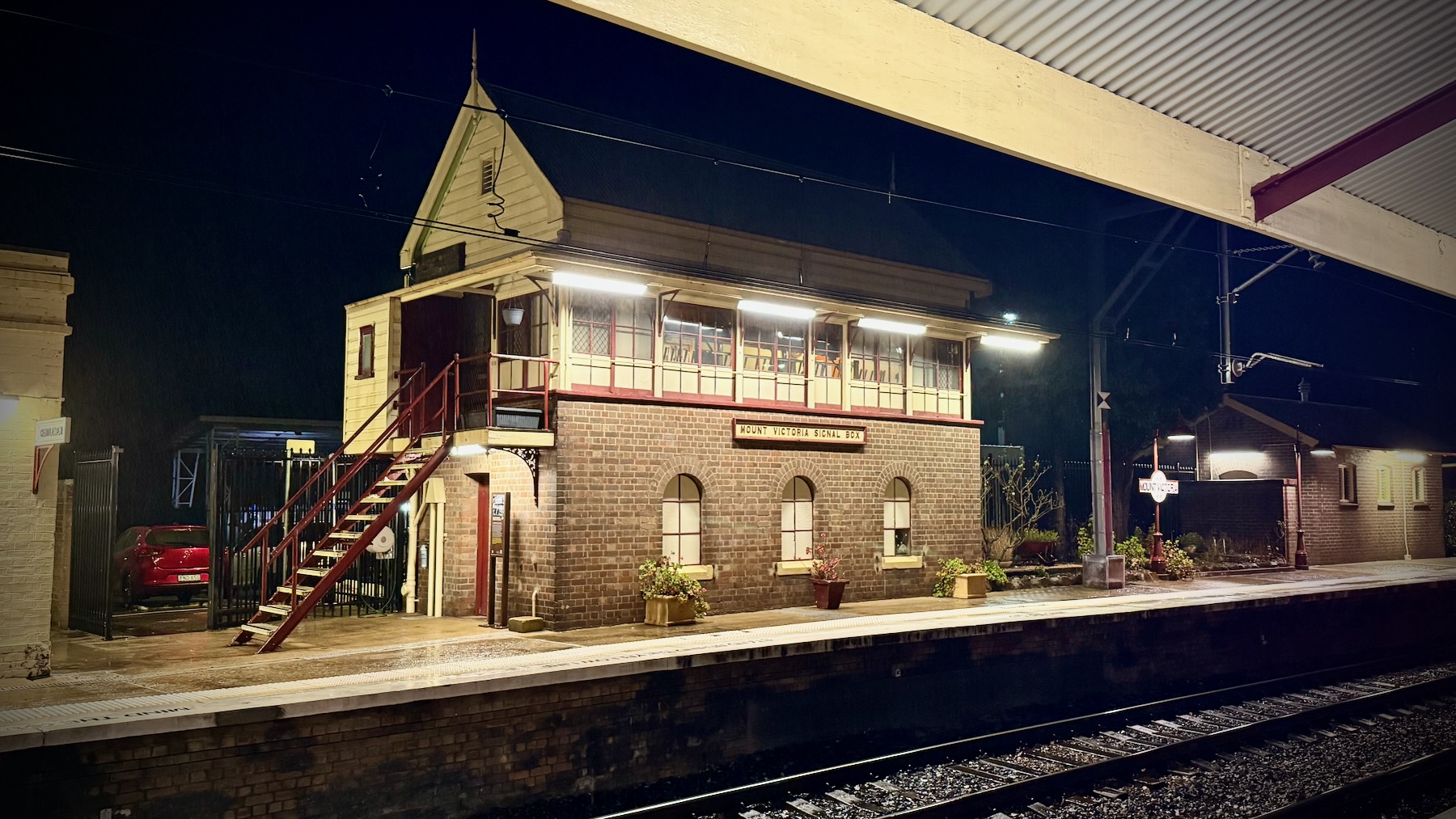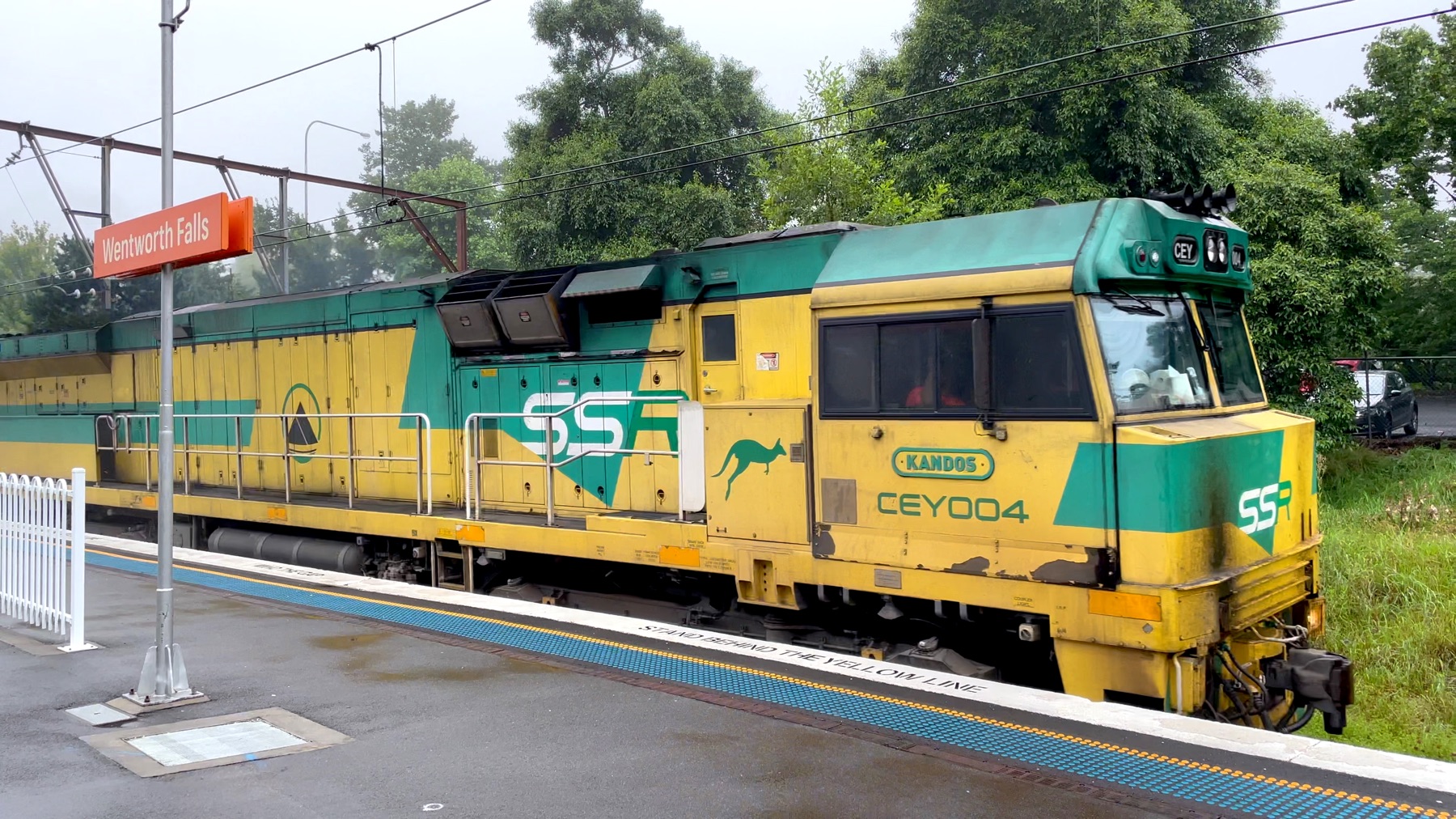My week of Monday 4 to Sunday 10 August 2025 saw the production of a podcast and some work on my websites, as well as quite a bit of sleep. So, an ordinary week. I also made an unexpected trip to Mount Victoria before Monday had even properly begun.
Continue reading “Weekly Wrap 793: It began in Mount Victoria…”Weekly Wrap 610: I had an editorial meeting and I saw a coal train and I uploaded some videos
My week of Monday 31 January to Sunday 6 February 2022 saw me slowly returning to productivity after that lurgi. Certain circumstances led to the podcast recording being pushed back, but I got plenty of other things done.
Continue reading “Weekly Wrap 610: I had an editorial meeting and I saw a coal train and I uploaded some videos”Weekly Wrap 543: Generosity, moistness, and cybers
Monday 19 to Sunday 25 October 2020 was a happy one. A successful crowdfunding campaign. Productivity. And the start of a streak of rainy weather. Joy.
Continue reading “Weekly Wrap 543: Generosity, moistness, and cybers”Weekly Wrap 341: Cows, Canberra, and the Cyber Kangaroo
 My week of Monday 5 to Sunday 11 December 2016 was dominatedby my trip to Canberra to take part in the “360° Cyber Security Game” being convened by RAND Corporation and the National Security College (NSC) at The Australian National University (ANU).
My week of Monday 5 to Sunday 11 December 2016 was dominatedby my trip to Canberra to take part in the “360° Cyber Security Game” being convened by RAND Corporation and the National Security College (NSC) at The Australian National University (ANU).
In the background I did quite a bit of work on the SEKRIT editorial project. I promise to tell you more about that before Christmas.
Articles
- The flowering of voice control leads to a crop of security holes, ZDNet Australia, 5 December 2016.
- How the Cyber Kangaroo can help defend the Internet of Things, ZDNet Australia, 9 December 2016. This is the piece that came out of the Cyber Security Game.
Podcasts, Media Appearances, Corporate Largesse
None.
[Photo: Cows on the Move. Cattle run from the Canberra-Sydney train as it passed at full speed on 9 December 2016.]
The 9pm Planet of Fascist Delusions

Donald Trump demonstrates some modern thinking. Former Prime Minister Kevin Rudd submits to a Voight-Kampff test. And Senator Jacqui Lambie lays down the law on renewable energy.
In this podcast, there’s talk of windfarms, wind turbine syndrome, and a lack of science. Also, Tony Abbott, terrorism, George Brandis, poetry, and a little bit about fascism.
Continue reading “The 9pm Planet of Fascist Delusions”The 9pm Inadequate Sense of Occasion
There’s terror in Australia’s suburbs. But fear not. Attorney-General the Honourable Senator George “Soapy the Ankle” Brandis QC is on the case. And Bob Garfield speaks true wisdom.
In this podcast, there’s talk of trains, bombs, terrorism, conspiracies, more bombs, and more trains.
Continue reading “The 9pm Inadequate Sense of Occasion”



